Prof. Dr. Kohout. Environmental Governance in Europe

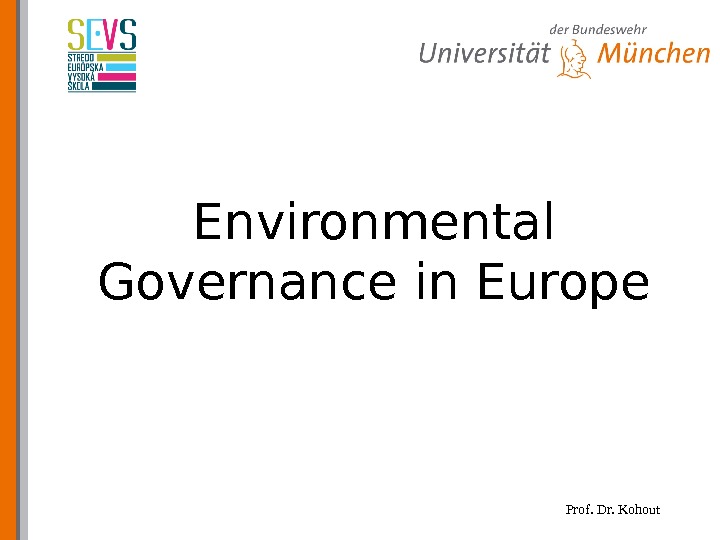
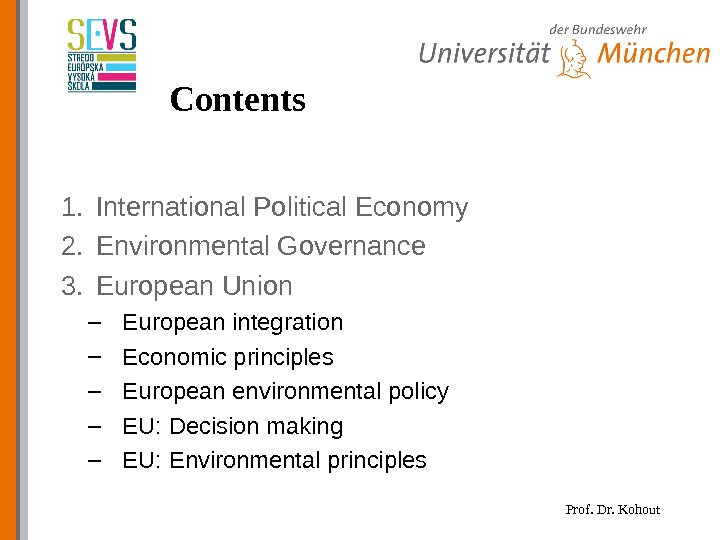
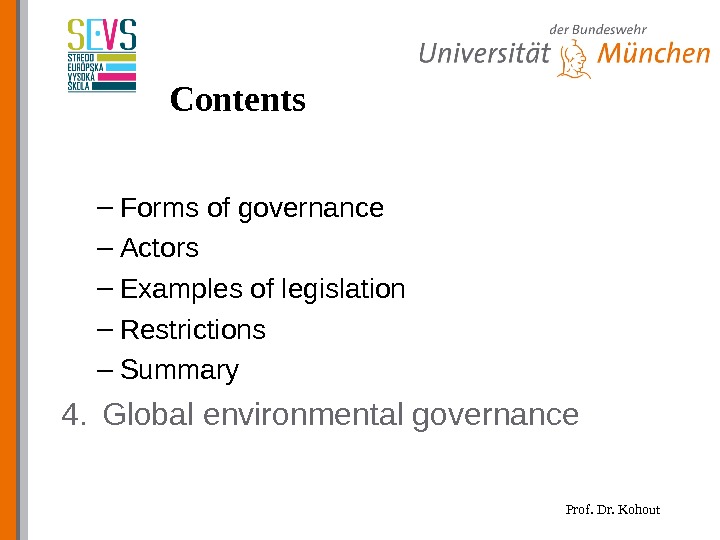
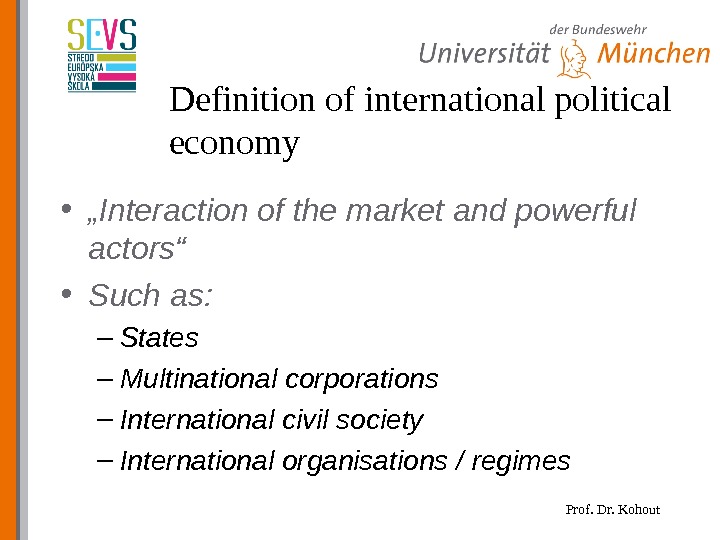
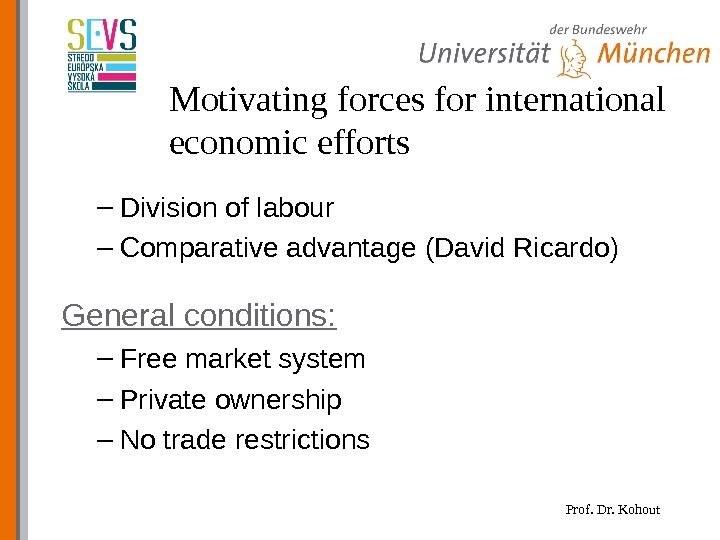
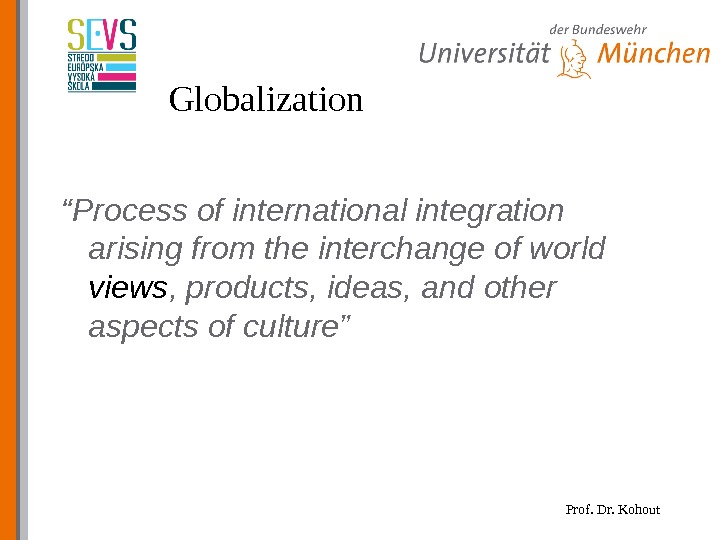
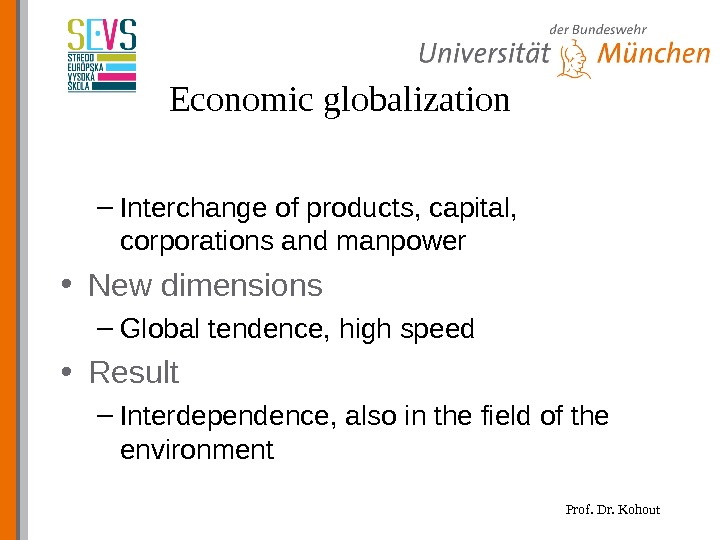
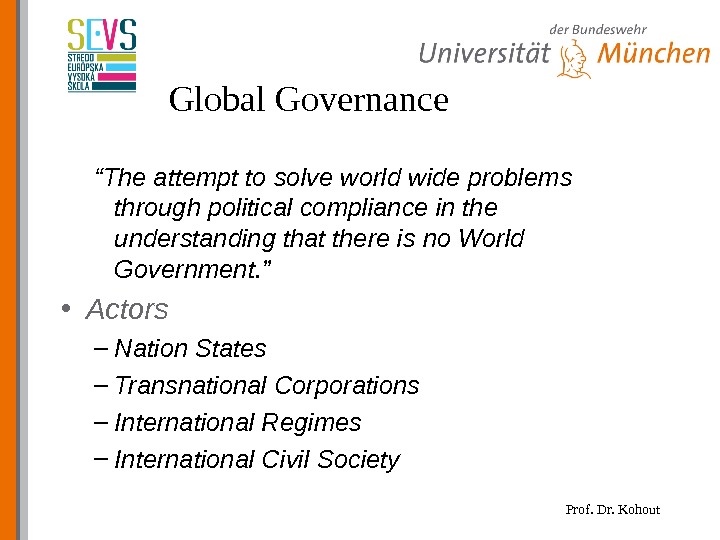
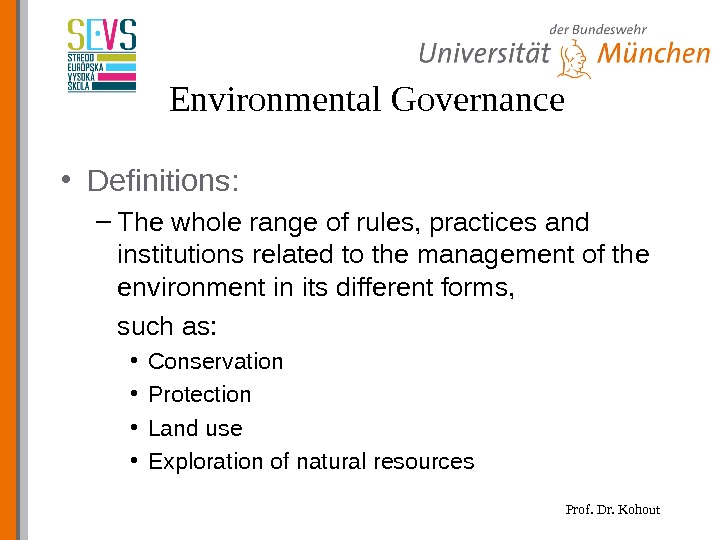
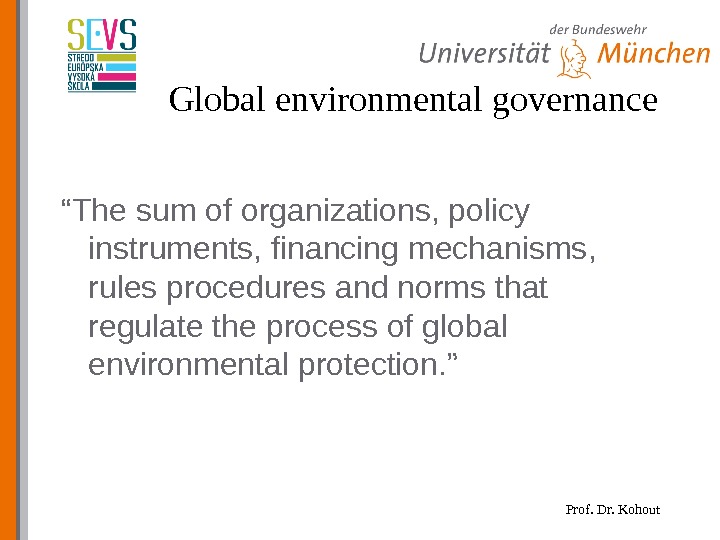
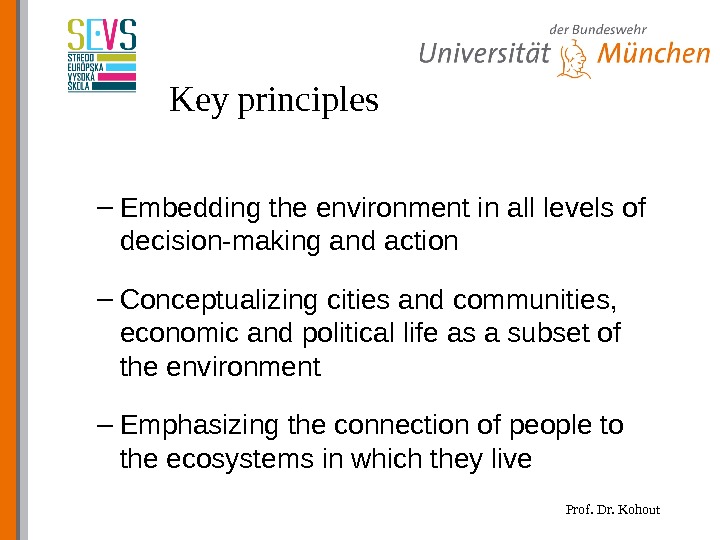
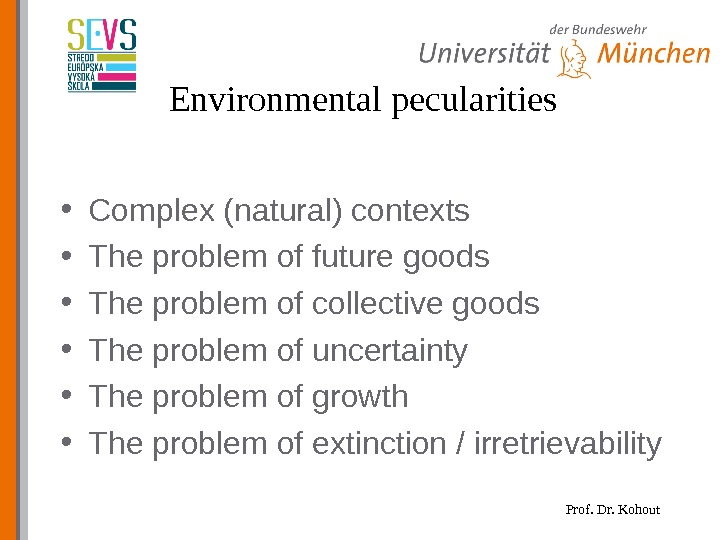
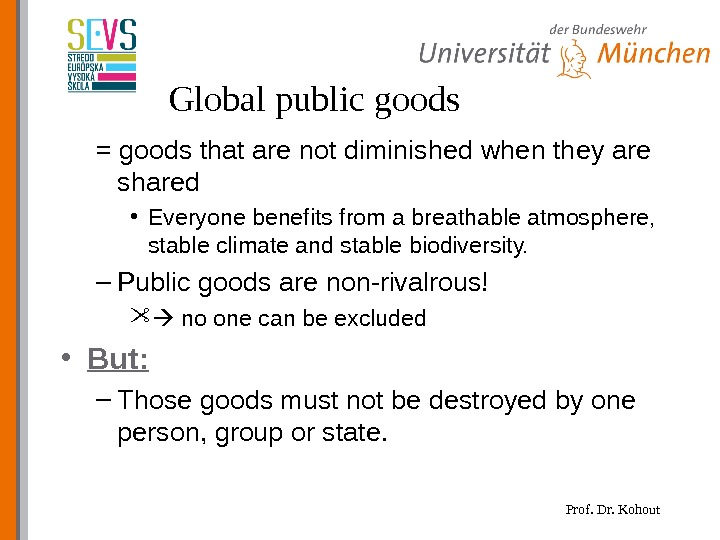
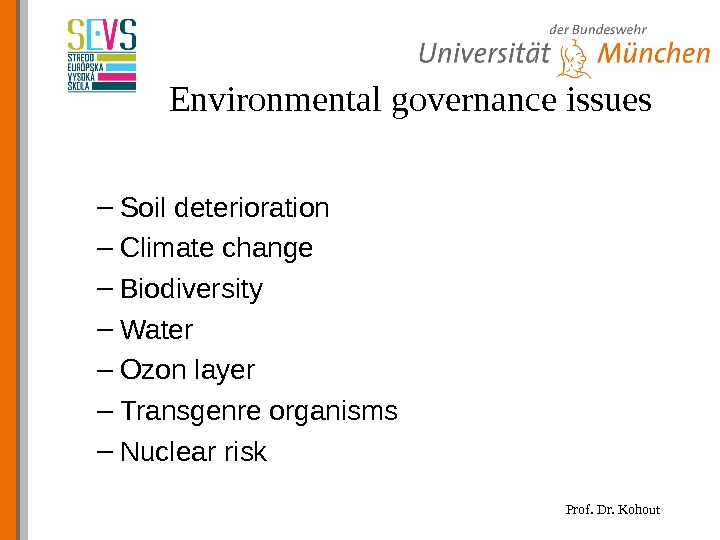
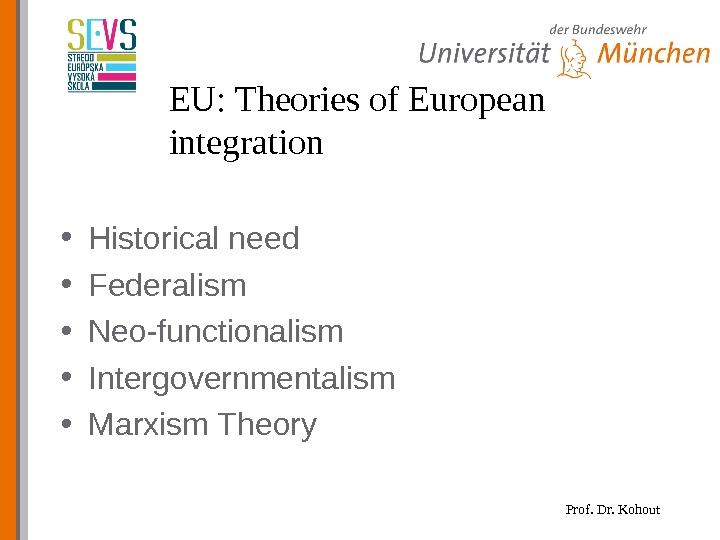
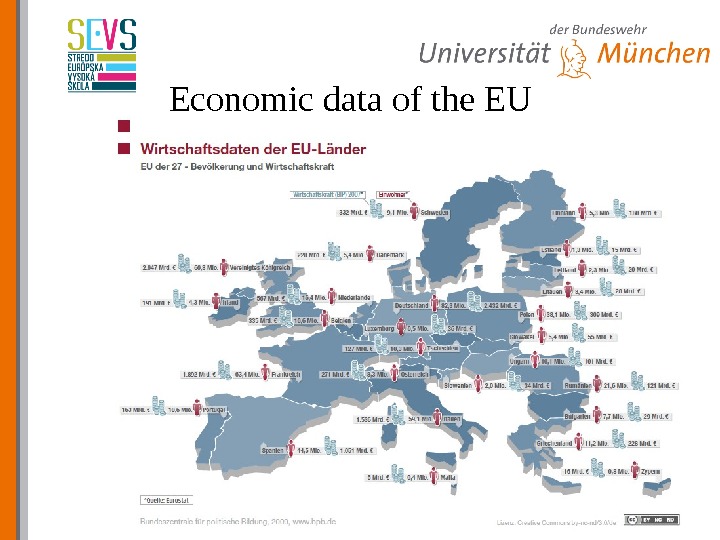
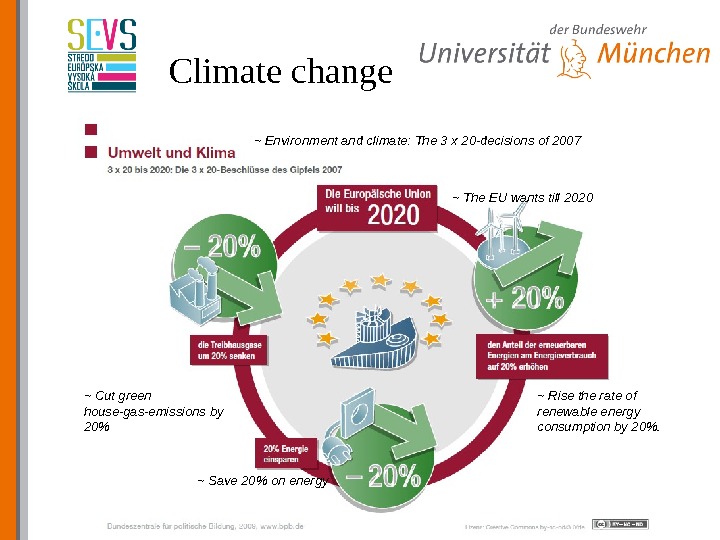
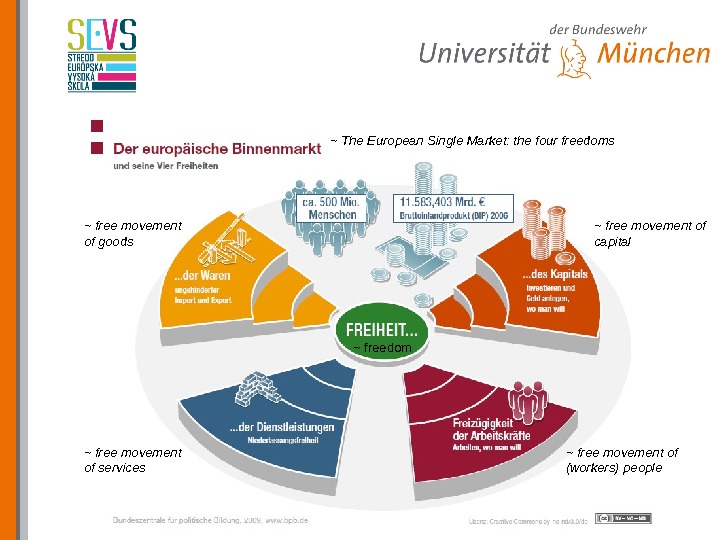
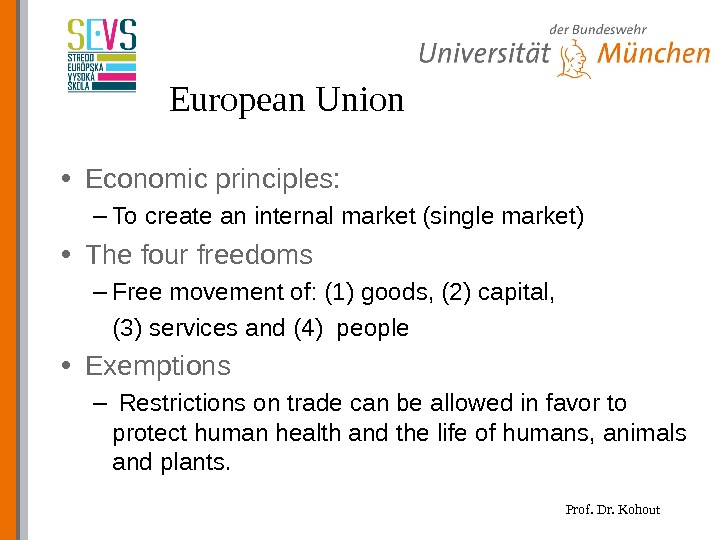
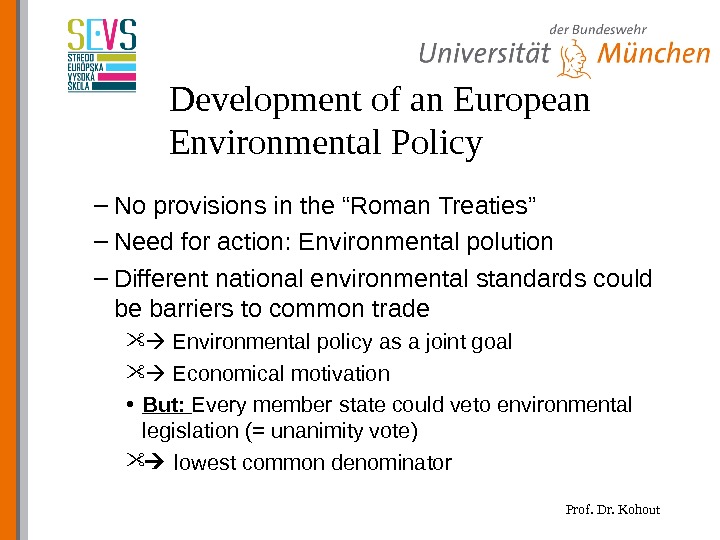
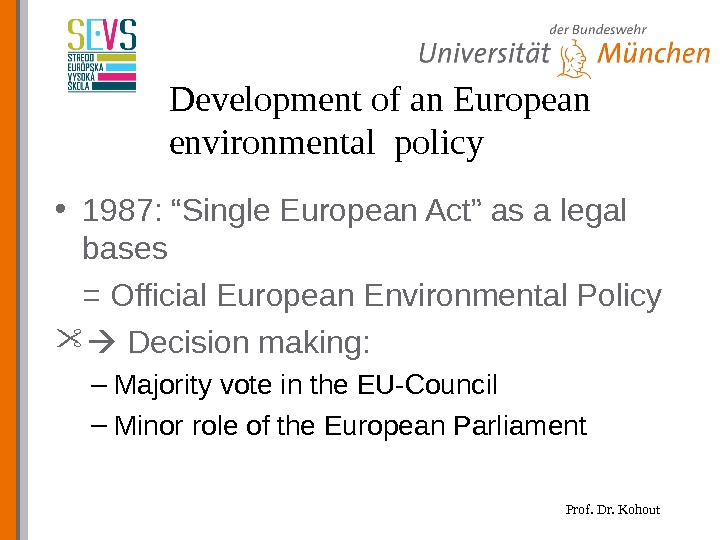
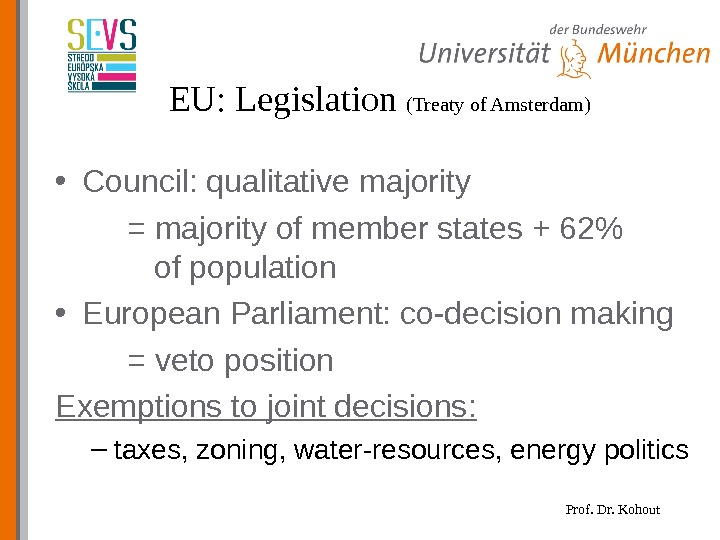
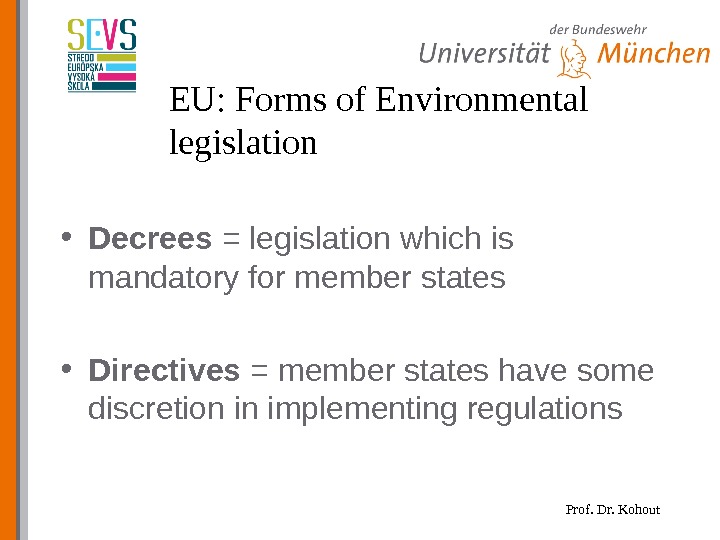
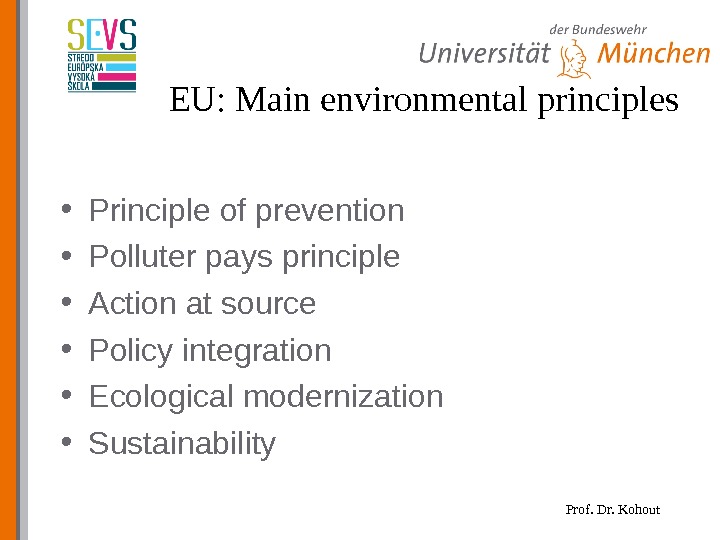
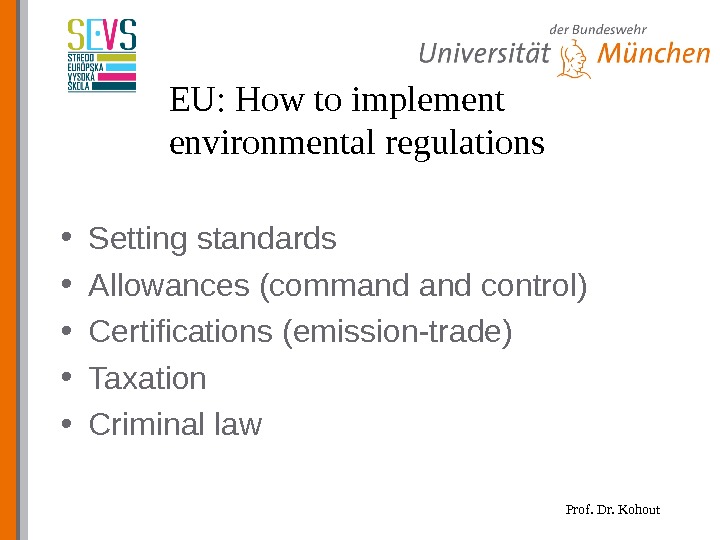
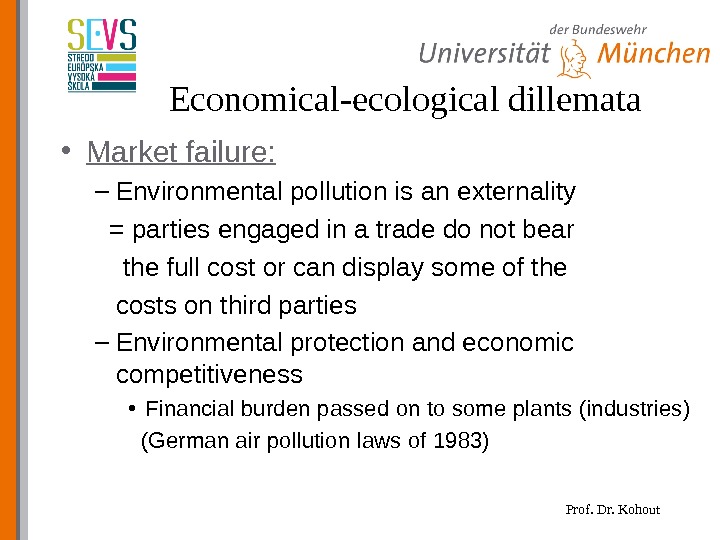
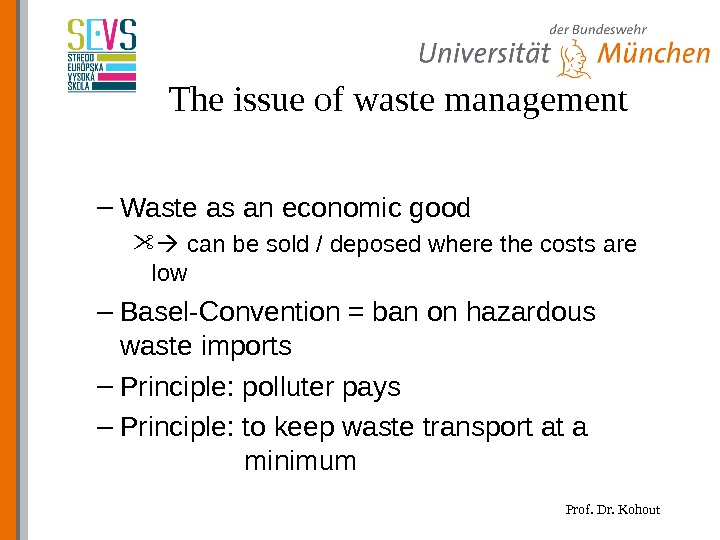
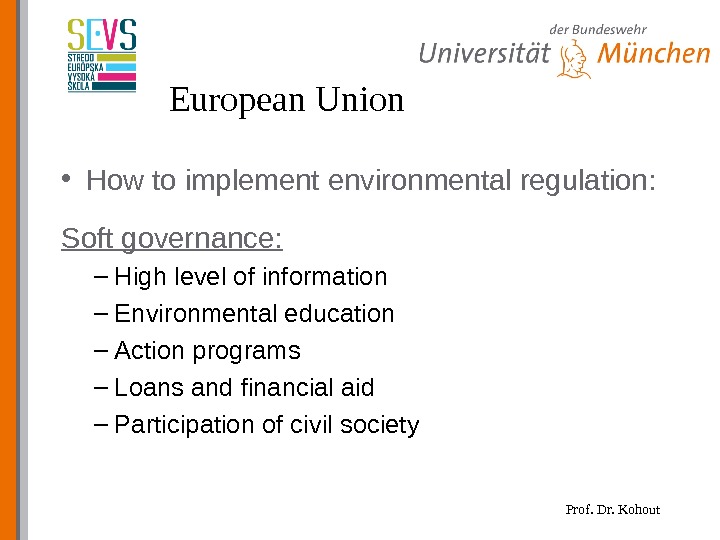
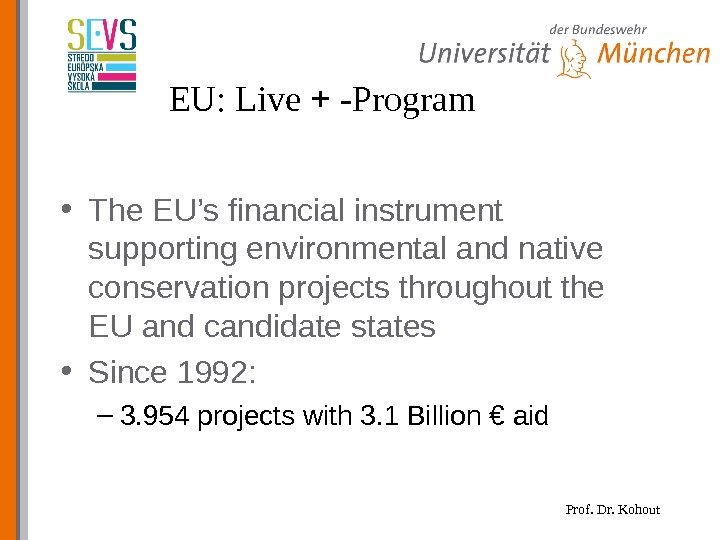
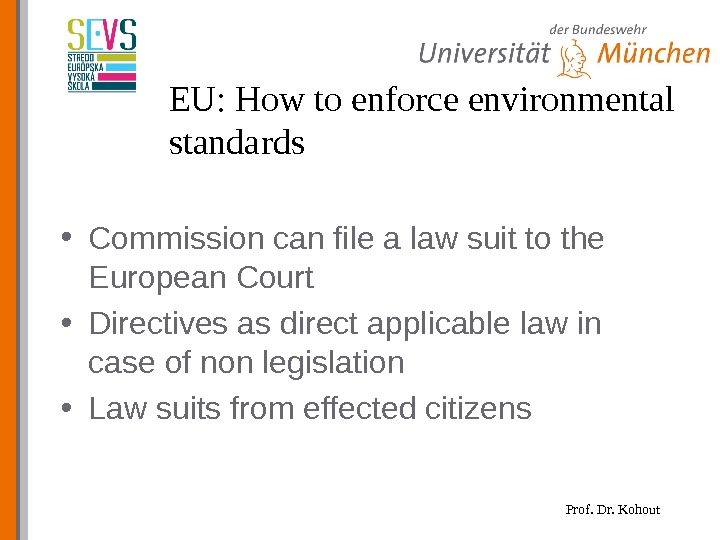
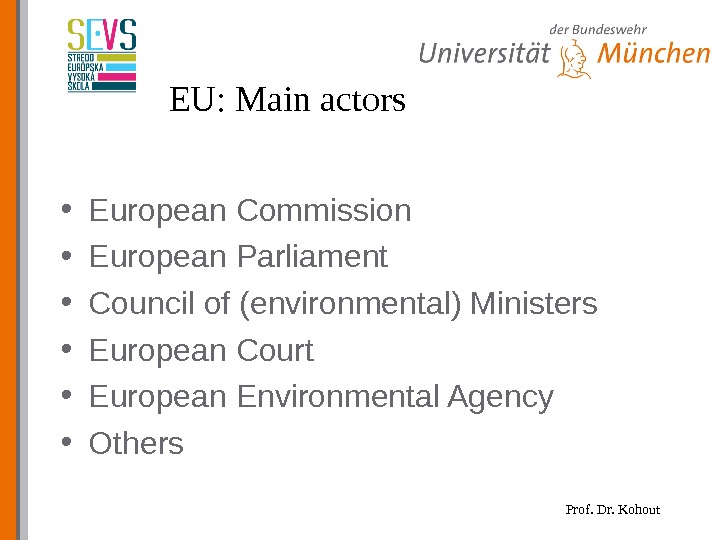
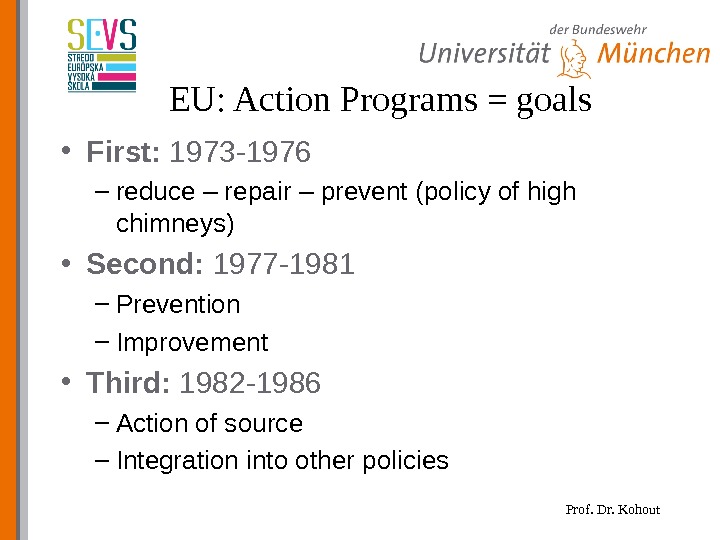
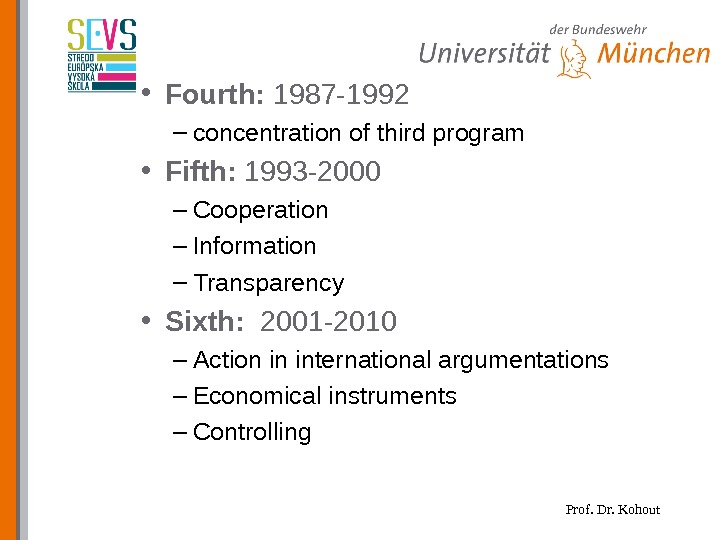
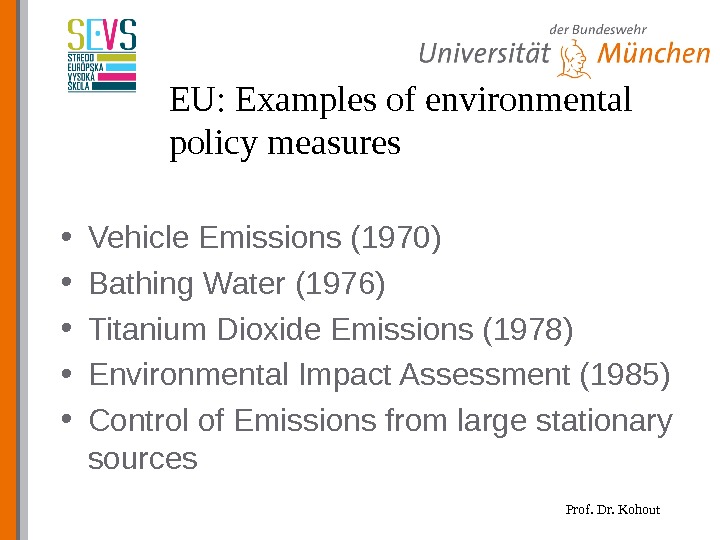
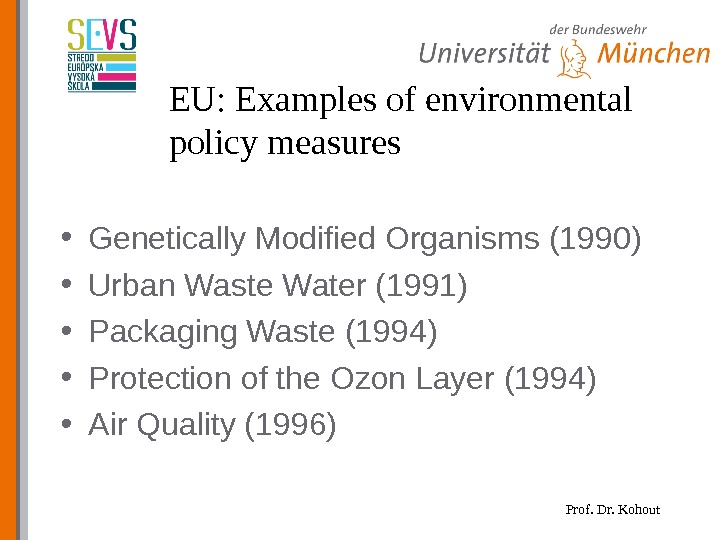
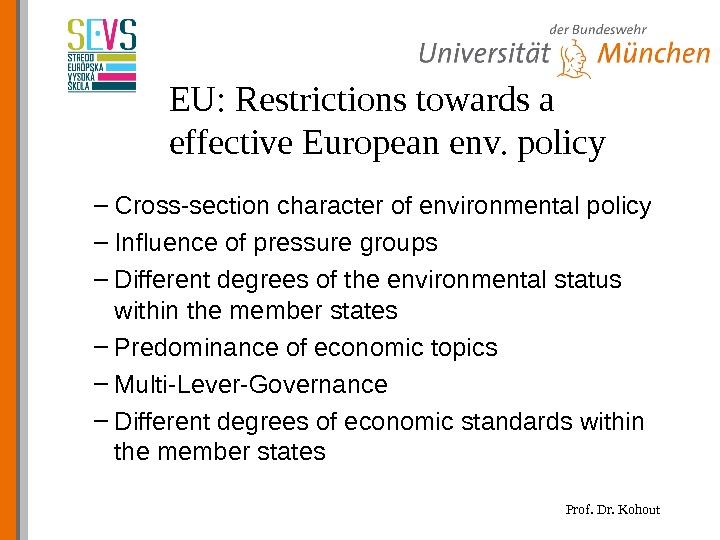
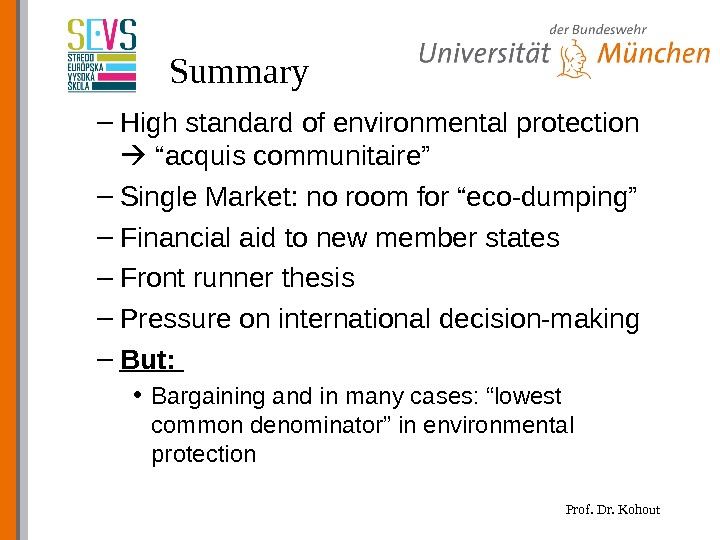
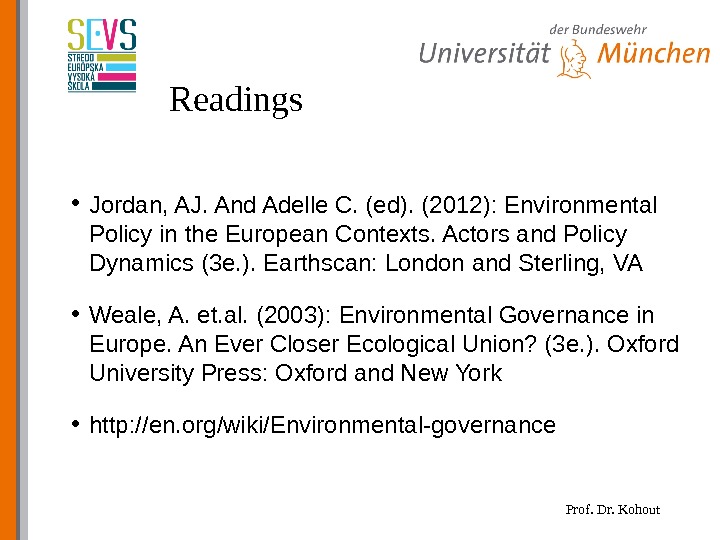
environmental_governance_in_europe.ppt
- Размер: 1011.5 Кб
- Количество слайдов: 38
Описание презентации Prof. Dr. Kohout. Environmental Governance in Europe по слайдам
 Prof. Dr. Kohout. Environmental Governance in Europe
Prof. Dr. Kohout. Environmental Governance in Europe
 Prof. Dr. Kohout. Contents 1. International Political Economy 2. Environmental Governance 3. European Union – European integration – Economic principles – European environmental policy – EU: Decision making – EU: Environmental principles
Prof. Dr. Kohout. Contents 1. International Political Economy 2. Environmental Governance 3. European Union – European integration – Economic principles – European environmental policy – EU: Decision making – EU: Environmental principles
 Prof. Dr. Kohout. Contents – Forms of governance – Actors – Examples of legislation – Restrictions – Summary 4. Global environmental governance
Prof. Dr. Kohout. Contents – Forms of governance – Actors – Examples of legislation – Restrictions – Summary 4. Global environmental governance
 Prof. Dr. Kohout. Definition of international political economy • „ Interaction of the market and powerful actors“ • Such as: – States – Multinational corporations – International civil society – International organisations / regimes
Prof. Dr. Kohout. Definition of international political economy • „ Interaction of the market and powerful actors“ • Such as: – States – Multinational corporations – International civil society – International organisations / regimes
 Prof. Dr. Kohout. Motivating forces for international economic efforts – Division of labour – Comparative advantage (David Ricardo) General conditions: – Free market system – Private ownership – No trade restrictions
Prof. Dr. Kohout. Motivating forces for international economic efforts – Division of labour – Comparative advantage (David Ricardo) General conditions: – Free market system – Private ownership – No trade restrictions
 Prof. Dr. Kohout. Globalization “ Process of international integration arising from the interchange of world views , products, ideas, and other aspects of culture”
Prof. Dr. Kohout. Globalization “ Process of international integration arising from the interchange of world views , products, ideas, and other aspects of culture”
 Prof. Dr. Kohout. Economic globalization – Interchange of products, capital, corporations and manpower • New dimensions – Global tendence, high speed • Result – Interdependence, also in the field of the environment
Prof. Dr. Kohout. Economic globalization – Interchange of products, capital, corporations and manpower • New dimensions – Global tendence, high speed • Result – Interdependence, also in the field of the environment
 Prof. Dr. Kohout. Global Governance “ The attempt to solve world wide problems through political compliance in the understanding that there is no World Government. ” • Actors – Nation States – Transnational Corporations – International Regimes – International Civil Society
Prof. Dr. Kohout. Global Governance “ The attempt to solve world wide problems through political compliance in the understanding that there is no World Government. ” • Actors – Nation States – Transnational Corporations – International Regimes – International Civil Society
 Prof. Dr. Kohout. Environmental Governance • Definitions: – The whole range of rules, practices and institutions related to the management of the environment in its different forms, such as: • Conservation • Protection • Land use • Exploration of natural resources
Prof. Dr. Kohout. Environmental Governance • Definitions: – The whole range of rules, practices and institutions related to the management of the environment in its different forms, such as: • Conservation • Protection • Land use • Exploration of natural resources
 Prof. Dr. Kohout. Global environmental governance “ The sum of organizations, policy instruments, financing mechanisms, rules procedures and norms that regulate the process of global environmental protection. ”
Prof. Dr. Kohout. Global environmental governance “ The sum of organizations, policy instruments, financing mechanisms, rules procedures and norms that regulate the process of global environmental protection. ”
 Prof. Dr. Kohout. Key principles – Embedding the environment in all levels of decision-making and action – Conceptualizing cities and communities, economic and political life as a subset of the environment – Emphasizing the connection of people to the ecosystems in which they live
Prof. Dr. Kohout. Key principles – Embedding the environment in all levels of decision-making and action – Conceptualizing cities and communities, economic and political life as a subset of the environment – Emphasizing the connection of people to the ecosystems in which they live
 Prof. Dr. Kohout. Environmental pecularities • Complex (natural) contexts • The problem of future goods • The problem of collective goods • The problem of uncertainty • The problem of growth • The problem of extinction / irretrievability
Prof. Dr. Kohout. Environmental pecularities • Complex (natural) contexts • The problem of future goods • The problem of collective goods • The problem of uncertainty • The problem of growth • The problem of extinction / irretrievability
 Prof. Dr. Kohout. Global public goods = goods that are not diminished when they are shared • Everyone benefits from a breathable atmosphere, stable climate and stable biodiversity. – Public goods are non-rivalrous! no one can be excluded • But: – Those goods must not be destroyed by one person, group or state.
Prof. Dr. Kohout. Global public goods = goods that are not diminished when they are shared • Everyone benefits from a breathable atmosphere, stable climate and stable biodiversity. – Public goods are non-rivalrous! no one can be excluded • But: – Those goods must not be destroyed by one person, group or state.
 Prof. Dr. Kohout. Environmental governance issues – Soil deterioration – Climate change – Biodiversity – Water – Ozon layer – Transgenre organisms – Nuclear risk
Prof. Dr. Kohout. Environmental governance issues – Soil deterioration – Climate change – Biodiversity – Water – Ozon layer – Transgenre organisms – Nuclear risk
 Prof. Dr. Kohout. EU: Theories of European integration • Historical need • Federalism • Neo-functionalism • Intergovernmentalism • Marxism Theory
Prof. Dr. Kohout. EU: Theories of European integration • Historical need • Federalism • Neo-functionalism • Intergovernmentalism • Marxism Theory
 Prof. Dr. Kohout. Economic data of the EU
Prof. Dr. Kohout. Economic data of the EU
 Prof. Dr. Kohout. Climate change ~ Environment and climate: The 3 x 20 -decisions of 2007 ~ The EU wants till 2020 ~ Rise the rate of renewable energy consumption by 20%. ~ Save 20% on energy~ Cut green house-gas-emissions by 20%
Prof. Dr. Kohout. Climate change ~ Environment and climate: The 3 x 20 -decisions of 2007 ~ The EU wants till 2020 ~ Rise the rate of renewable energy consumption by 20%. ~ Save 20% on energy~ Cut green house-gas-emissions by 20%
 Prof. Dr. Kohout~ The European Single Market: the four freedoms ~ freedom~ free movement of goods ~ free movement of services ~ free movement of capital ~ free movement of (workers) people
Prof. Dr. Kohout~ The European Single Market: the four freedoms ~ freedom~ free movement of goods ~ free movement of services ~ free movement of capital ~ free movement of (workers) people
 Prof. Dr. Kohout. European Union • Economic principles: – To create an internal market (single market) • The four freedoms – Free movement of: (1) goods, (2) capital, (3) services and (4) people • Exemptions – Restrictions on trade can be allowed in favor to protect human health and the life of humans, animals and plants.
Prof. Dr. Kohout. European Union • Economic principles: – To create an internal market (single market) • The four freedoms – Free movement of: (1) goods, (2) capital, (3) services and (4) people • Exemptions – Restrictions on trade can be allowed in favor to protect human health and the life of humans, animals and plants.
 Prof. Dr. Kohout. Development of an European Environmental Policy – No provisions in the “Roman Treaties” – Need for action: Environmental polution – Different national environmental standards could be barriers to common trade Environmental policy as a joint goal Economical motivation • But: Every member state could veto environmental legislation (= unanimity vote) lowest common denominator
Prof. Dr. Kohout. Development of an European Environmental Policy – No provisions in the “Roman Treaties” – Need for action: Environmental polution – Different national environmental standards could be barriers to common trade Environmental policy as a joint goal Economical motivation • But: Every member state could veto environmental legislation (= unanimity vote) lowest common denominator
 Prof. Dr. Kohout. Development of an European environmental policy • 1987: “Single European Act” as a legal bases = Official European Environmental Policy Decision making: – Majority vote in the EU-Council – Minor role of the European Parliament
Prof. Dr. Kohout. Development of an European environmental policy • 1987: “Single European Act” as a legal bases = Official European Environmental Policy Decision making: – Majority vote in the EU-Council – Minor role of the European Parliament
 Prof. Dr. Kohout. EU: Legislation (Treaty of Amsterdam) • Council: qualitative majority = majority of member states + 62% of population • European Parliament: co-decision making = veto position Exemptions to joint decisions: – taxes, zoning, water-resources, energy politics
Prof. Dr. Kohout. EU: Legislation (Treaty of Amsterdam) • Council: qualitative majority = majority of member states + 62% of population • European Parliament: co-decision making = veto position Exemptions to joint decisions: – taxes, zoning, water-resources, energy politics
 Prof. Dr. Kohout. EU: Forms of Environmental legislation • Decrees = legislation which is mandatory for member states • Directives = member states have some discretion in implementing regulations
Prof. Dr. Kohout. EU: Forms of Environmental legislation • Decrees = legislation which is mandatory for member states • Directives = member states have some discretion in implementing regulations
 Prof. Dr. Kohout. EU: Main environmental principles • Principle of prevention • Polluter pays principle • Action at source • Policy integration • Ecological modernization • Sustainability
Prof. Dr. Kohout. EU: Main environmental principles • Principle of prevention • Polluter pays principle • Action at source • Policy integration • Ecological modernization • Sustainability
 Prof. Dr. Kohout. EU: How to implement environmental regulations • Setting standards • Allowances (command control) • Certifications (emission-trade) • Taxation • Criminal law
Prof. Dr. Kohout. EU: How to implement environmental regulations • Setting standards • Allowances (command control) • Certifications (emission-trade) • Taxation • Criminal law
 Prof. Dr. Kohout. Economical-ecological dillemata • Market failure: – Environmental pollution is an externality = parties engaged in a trade do not bear the full cost or can display some of the costs on third parties – Environmental protection and economic competitiveness • Financial burden passed on to some plants (industries) (German air pollution laws of 1983)
Prof. Dr. Kohout. Economical-ecological dillemata • Market failure: – Environmental pollution is an externality = parties engaged in a trade do not bear the full cost or can display some of the costs on third parties – Environmental protection and economic competitiveness • Financial burden passed on to some plants (industries) (German air pollution laws of 1983)
 Prof. Dr. Kohout. The issue of waste management – Waste as an economic good can be sold / deposed where the costs are low – Basel-Convention = ban on hazardous waste imports – Principle: polluter pays – Principle: to keep waste transport at a minimum
Prof. Dr. Kohout. The issue of waste management – Waste as an economic good can be sold / deposed where the costs are low – Basel-Convention = ban on hazardous waste imports – Principle: polluter pays – Principle: to keep waste transport at a minimum
 Prof. Dr. Kohout. European Union • How to implement environmental regulation: Soft governance: – High level of information – Environmental education – Action programs – Loans and financial aid – Participation of civil society
Prof. Dr. Kohout. European Union • How to implement environmental regulation: Soft governance: – High level of information – Environmental education – Action programs – Loans and financial aid – Participation of civil society
 Prof. Dr. Kohout. EU: Live + — Program • The EU’s financial instrument supporting environmental and native conservation projects throughout the EU and candidate states • Since 1992: – 3. 954 projects with 3. 1 Billion € aid
Prof. Dr. Kohout. EU: Live + — Program • The EU’s financial instrument supporting environmental and native conservation projects throughout the EU and candidate states • Since 1992: – 3. 954 projects with 3. 1 Billion € aid
 Prof. Dr. Kohout. EU: How to enforce environmental standards • Commission can file a law suit to the European Court • Directives as direct applicable law in case of non legislation • Law suits from effected citizens
Prof. Dr. Kohout. EU: How to enforce environmental standards • Commission can file a law suit to the European Court • Directives as direct applicable law in case of non legislation • Law suits from effected citizens
 Prof. Dr. Kohout. EU: Main actors • European Commission • European Parliament • Council of (environmental) Ministers • European Court • European Environmental Agency • Others
Prof. Dr. Kohout. EU: Main actors • European Commission • European Parliament • Council of (environmental) Ministers • European Court • European Environmental Agency • Others
 Prof. Dr. Kohout. EU: Action Programs = goals • First: 1973 -1976 – reduce – repair – prevent (policy of high chimneys) • Second: 1977 -1981 – Prevention – Improvement • Third: 1982 -1986 – Action of source – Integration into other policies
Prof. Dr. Kohout. EU: Action Programs = goals • First: 1973 -1976 – reduce – repair – prevent (policy of high chimneys) • Second: 1977 -1981 – Prevention – Improvement • Third: 1982 -1986 – Action of source – Integration into other policies
 Prof. Dr. Kohout • Fourth: 1987 -1992 – concentration of third program • Fifth: 1993 -2000 – Cooperation – Information – Transparency • Sixth: 2001 -2010 – Action in international argumentations – Economical instruments – Controlling
Prof. Dr. Kohout • Fourth: 1987 -1992 – concentration of third program • Fifth: 1993 -2000 – Cooperation – Information – Transparency • Sixth: 2001 -2010 – Action in international argumentations – Economical instruments – Controlling
 Prof. Dr. Kohout. EU: Examples of environmental policy measures • Vehicle Emissions (1970) • Bathing Water (1976) • Titanium Dioxide Emissions (1978) • Environmental Impact Assessment (1985) • Control of Emissions from large stationary sources
Prof. Dr. Kohout. EU: Examples of environmental policy measures • Vehicle Emissions (1970) • Bathing Water (1976) • Titanium Dioxide Emissions (1978) • Environmental Impact Assessment (1985) • Control of Emissions from large stationary sources
 Prof. Dr. Kohout. EU: Examples of environmental policy measures • Genetically Modified Organisms (1990) • Urban Waste Water (1991) • Packaging Waste (1994) • Protection of the Ozon Layer (1994) • Air Quality (1996)
Prof. Dr. Kohout. EU: Examples of environmental policy measures • Genetically Modified Organisms (1990) • Urban Waste Water (1991) • Packaging Waste (1994) • Protection of the Ozon Layer (1994) • Air Quality (1996)
 Prof. Dr. Kohout. EU: Restrictions towards a effective European env. policy – Cross-section character of environmental policy – Influence of pressure groups – Different degrees of the environmental status within the member states – Predominance of economic topics – Multi-Lever-Governance – Different degrees of economic standards within the member states
Prof. Dr. Kohout. EU: Restrictions towards a effective European env. policy – Cross-section character of environmental policy – Influence of pressure groups – Different degrees of the environmental status within the member states – Predominance of economic topics – Multi-Lever-Governance – Different degrees of economic standards within the member states
 Prof. Dr. Kohout. Summary – High standard of environmental protection “acquis communitaire” – Single Market: no room for “eco-dumping” – Financial aid to new member states – Front runner thesis – Pressure on international decision-making – But: • Bargaining and in many cases: “lowest common denominator” in environmental protection
Prof. Dr. Kohout. Summary – High standard of environmental protection “acquis communitaire” – Single Market: no room for “eco-dumping” – Financial aid to new member states – Front runner thesis – Pressure on international decision-making – But: • Bargaining and in many cases: “lowest common denominator” in environmental protection
 Prof. Dr. Kohout. Readings • Jordan, AJ. And Adelle C. (ed). (2012): Environmental Policy in the European Contexts. Actors and Policy Dynamics (3 e. ). Earthscan: London and Sterling, VA • Weale, A. et. al. (2003): Environmental Governance in Europe. An Ever Closer Ecological Union? (3 e. ). Oxford University Press: Oxford and New York • http: //en. org/wiki/Environmental-governance
Prof. Dr. Kohout. Readings • Jordan, AJ. And Adelle C. (ed). (2012): Environmental Policy in the European Contexts. Actors and Policy Dynamics (3 e. ). Earthscan: London and Sterling, VA • Weale, A. et. al. (2003): Environmental Governance in Europe. An Ever Closer Ecological Union? (3 e. ). Oxford University Press: Oxford and New York • http: //en. org/wiki/Environmental-governance

